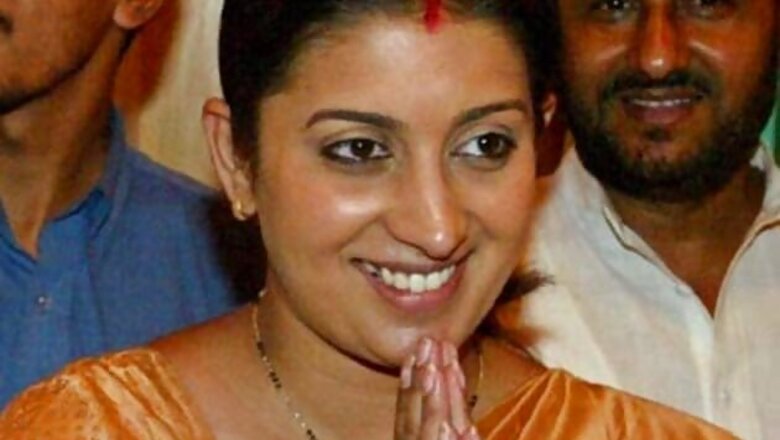
views
In a country where hierarchy and class differences manifest at every turn, we have several forms of the West's N-word. One is "neech", with its connotations of lower caste and social background, a word which has never really lost its pejorative associations despite years of affirmative action and which caused a lot of heated arguments during the campaign season. The other is "nalayak".
It is an over-used word, beginning with the stereotypical parent telling her child that the neighbour's "competent" son will definitely become a doctor or an engineer (the two perennial middle class mainstays of this country). The "nalayak", however, would be lucky to study humanities in a decent college and get some kind of marginal job. It is an umbrella term for a range of flaws - incompetence, inefficiency, inadequate intellectual abilities or social background - to dismiss an embarrassing child or an inconvenient opponent.
Madhu Kishwar, who has a supernatural capacity to be in the news with the most combative of statements, has now invoked the dreaded N-word against Smriti Irani. Reason: India's new HRD minister is apparently not a graduate but merely passed her 12th standard, "and a very nalayak 12th pass at that," says Kishwar.
It is undisputable that the HRD ministry needs a different treatment than some of the others. It involves extensive interaction with heads of India's educational institutions, the UGC, the various boards. A deadly combination these fine gentlemen and ladies are, being part academics, part administrators and, in some cases, wholly mercenary. It is not a task for someone uninitiated into the black arts of politics in higher academia. The frequent argument that the HRD minister can rely on her IAS officers to do the heavy lifting will cease to matter when one witnesses the bitter feuds between these academic heads and India's bureaucracy. It is practically a hobby for everyone involved, and enough to make a 38-year old's hair turn grey.
Be that as it may, Kishwar's broadsides against Irani appear to be motivated less by an altruistic desire to see India's education system in the hands of someone familiar with its workings, and more by petty vindictiveness and spite.
In another statement, Kishwar has apparently said that the ministry should be under an IITian or somebody similar. There is no basis for such a line of thought. While IITs and IIMs are centres of excellence, they are specialised institutions and insulated from the vast hinterland of India's education system. One could call this elitism, except Kishwar's from the humanities herself.
After decades as a prominent feminist committed to the Left, Kishwar did a volte-face about three years ago and emerged as a champion for the Modi system of governance, thus joining the ranks of such luminaries as Raj Thackeray - personal supporters of Modi without necessarily warming up to the rest of his party. After defending Modi against his critics through the runup to this year's elections, Kishwar turned a critic of the new government the moment it took over, reserving her ire exclusively for Irani.
One wonders whether it is a case of sour grapes for Kishwar; whether she had been harbouring serious wishes to take charge of the country's education system. An unrealistic hope, but who can second-guess Indian intellectuals and the many turns their ideologies take?
Speaking of "layaks" and "nalayaks", a look at Kishwar's educational background might be in order. The Miranda House, DU graduate studied history at JNU. We will leave apart the interesting fact that JNU does not figure in the top 200 institutions in Asia in any of the three major academic rankings, while the IITs, Delhi, Mumbai and Banaras Hindu Universities do. JNU is also not a member of Universitas 21, arguably the most extensive network of higher education institutions worldwide for research collaboration in the humanities and other fields. Delhi University is.
We will just consider the social composition of Kishwar's university. JNU's fee structure is at its well-known nominal level to enable students with economic constraints to get a higher education.
While many in this country would be overjoyed to get a chance to study further, they have to start working. The taxes they pay subsidise food and lodgings in universities like JNU across India. While we can't comment on Smriti Irani's reasons for not completing her graduation, by using the N-word, Kishwar is doing a grave disservice to many deserving young people who never got a chance to get higher degrees, either because of inadequate mentoring at home or financial problems.
The debate on what kind of person deserves to be the HRD minister can be conducted in more dignified ways than through mere name-calling. By making such statements, Kishwar is merely displaying a kind of elitism that has crept in among India's academia who, regardless of political leanings, fail to understand that the very affordability of higher education in the country is based on the efforts of the truly marginalised, those who can't even afford such "layak" degrees.



















Comments
0 comment